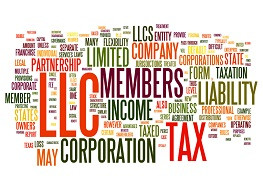Sweat Equity and Entity Choices
Related Practice: Business
This post is part one in a three-part series about noteworthy topics regarding entity choice, compensation and business succession. Part two, “Family Business Succession Planning,” reviews questions and factors to keep in mind when considering business succession. Part three, "Nonqualified Deferred Compensation for Closely Held Businesses," outlines the requirements of nonqualified deferred compensation plans and the penalties for failing to meet their requirements.

I recently returned from the ABA tax conference where I spoke on a panel that discussed an “Overview of Legal and Practical Aspects of Representing Businesses.” Upon reflection, I thought a business audience beyond the conference attendees would benefit from an overview of points to ponder regarding entity choice and compensation that were discussed on the panel. Below are questions about sweat equity and entity choices that arose during the discussion.
How can I provide equity to sweat contributors without a big tax hit?
Businesses commonly choose to form a limited liability company (“LLC”) taxed as a partnership at the federal level. This permits flexibility in structuring distributions to equity holders, among other advantages. One of the flexible features of this structure is that “sweat equity” contributors may be given a “profits interest” in the LLC that is tax free upon grant. This is in contrast to a grant of a capital interest to a sweat equity contributor, which would be taxable to the equity holder based on the equity’s fair market value. A profits interest is generally equity in the LLC that does not require a capital contribution, provides for an interest in the profits going forward, and provides for a zero payout if the LLC were liquidated upon grant. A profits interest can be attractive because of its tax benefits in addition to its capacity to accommodate a threshold of payouts to capital contributors first and/or require profits to reach targets prior to payout.
How would an employee reduce employment taxes upon disposition of restricted equity?
Employees who are granted restricted stock or restricted LLC units should consider making an 83(b) election under the Internal Revenue Code to reduce employment taxes upon disposition of equity. The 83(b) election must be filed with the IRS in accordance with its regulations within 30 days after the date of transfer of the restricted equity. An 83(b) election allows the employee to take the fair market value of the restricted equity (above any amount paid for the stock) into income as compensation at the time of grant and thereafter receive capital gains treatment upon the disposition. This is most beneficial with startups that have a low value upon grant of the equity, although the election can also be useful for grants of restricted equity that are likely to appreciate.
Why would a business consider forming as an LLC that elects to be taxed as an S corporation?
When thinking about entity choice, certain businesses may consider a corporation taxed as an S corporation at the federal level because it allows for a reasonable salary (subject to employment taxes) to be paid out to equity holders who are also actively involved in the management of the corporation, but also allows for separate distributions that are not subject to employment taxes. In contrast, in an LLC taxed as a partnership or a disregarded entity, equity holders who are actively involved in the management of the LLC may pay self-employment taxes on all distributions. To avoid this result, businesses are now considering an added twist—an LLC that elects to be taxed as an S corporation at the federal tax level. Beyond self-employment tax savings, an LLC may be preferable because of the flexible management structure and ability to customize the operating agreement. Furthermore, LLCs can restrict creditors who have obtained a judgment against a member in an LLC to the receipt of an “economic interest” rather than a full membership interest that is entitled to participate in the management of the LLC business or to enjoy voting rights. A business should carefully consider an S corporation election before making the leap due to the one class of stock restriction, limited ownership structure, and other requirements of an S corporation election.
